The mortgage industry recently underwent a large change in the way high-ratio mortgages are now qualified and approved. A high-ratio mortgage is a mortgage where less than 20% of the total value of the home is being put forward as a down payment. While these mortgages traditionally required CMHC insurance the qualification process for them was the same as any other mortgage.
However, on October 17, 2016 the rules changed. Now, if you apply for a high-ratio mortgage you must now apply under a higher interest rate (the Bank of Canada’s interest rate), as opposed to the interest rate posted by your bank or lender.
These changes mean that high-ratio buyers must now undergo a stress test, and qualify at a much higher interest rate than a conventional mortgage. However, once a high-ratio mortgage is approved the mortgage itself will be subject to the interest rate set by the market, not the one set by the Bank of Canada.
What do These Changes Mean for the Average Home Buyer?
For any home buyers who are looking at purchasing a home with a down payment of less than 20%, this change means that they will need to qualify at a higher interest rate, but that their mortgages will be approved at the posted rates. Assuming you are financially prepared and have a favourable debt to service ratio not much will change, except for the fact that you will have to be vetted under a somewhat more stringent qualification process.
For example, say you and your family have a household income of $87,000. This means that you will qualify for a $450,000 mortgage with a 5% down payment. According to Stats Canada the average household income for Calgary in 2014 was $109,000 and according to the October 2016 statistics from the CREB, the average home value in Calgary is $462,000.
These figures suggest that most homes in Calgary remain affordable for most households in the city.
First-Time Home Buyers
One group of home buyers that are likely to be significantly impacted by these changes is first-time home buyers. New grads and first-time home buyers typically have smaller down payments, and as a result, they are more likely to be subject to the new qualification requirements.
While many first-time home buyers previously considered detached homes, it is now more likely that many will turn to townhomes, condos, and attached homes instead because they are more affordable.
Looking at Your Finances Holistically
As a result of these recent changes, there is a renewed emphasis on overall financial wellness when assessing a home purchase. It is recommended that buyers who wish to utilize a high-ratio mortgage purchase their home before they look at acquiring other types of credit (such as financing cars or purchasing furniture). This is because acquiring large amounts of credit before or during the mortgage application process can impact their debt servicing ratio.
Rethinking the Concept of a “Starter Home”
Calgary’s real estate market when through an atypical period of sustained growth. Household incomes also grew alongside the real estate market, a phenomenon that is also atypical. As a result of these abnormalities, many new buyers skipped “starter homes” altogether, and moved straight into larger homes, estate homes, and luxury condos.
The new mortgage qualification rules may mean that many buyers who would have previously qualified for a mortgage that would have allowed them to move into a larger home may no longer be able to do so. As such the condo and townhome market may become the new most popular choices for new home buyers.
While we prefer not to speculate on the various aspects of the market, it appears that the townhome and condo may become stronger moving forward.
Practical Best Moves for New Home Buyers
If you are looking at purchasing a new home but find yourself bogged down with lots of questions you may want to consider meeting with a mortgage broker. A mortgage broker will work with you to determine your financial situation and goals and provide you with clear and accurate guidance that can help you move forward in the home buying process.
Another benefit of working with a mortgage broker is that the lenders, not the buyers, pay for the mortgage broker’s services. However, it is buyers like you that benefit, since a mortgage broker can provide you with a range of mortgage options, making it easier for you to find the best mortgage to suit your needs and goals.




